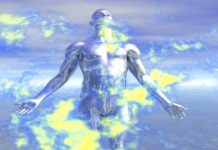The various features of human brain have given us an understanding about its complexity, but at the same time the more we unravel its secrets the more we understand our body as a whole. It so happens in our life’s journey that we meet certain people with whom we can get along with very well and there will also be some who will just put us off. Most of the times like-minded people will often be comfortable with one another. Some may even believe that the star signs may play a role In this. When we look at it from a scientific way recent research has revealed that the mirror neurons present in our brain distinguish between those we like and those we do not.
Mentally simulating the actions of others is thought to be a key component of empathy. Yet new research suggests that our so-called mirror neurons may also expose hidden divisions. A study published in October in the journal PLOS ONE reveals that these copycat neurons do not reflect all people equally.
Mirror neurons were discovered in the early 1990s, and their existence was a neuroscientific revelation: brain cells not only fire when we perform a given action, they also fire when we see someone else doing the deed. Much subsequent work has suggested that mirror neurons undergird social cognition. Now emerging research is finding that our mirror neuron system distinguishes between people who are physically and culturally similar and those who are not.
The new work probed these differences further. In the study, investigators asked 17 young adult Jewish men to review the biographies and photographs of eight individuals who physically resembled the participants. Half these characters, portrayed by actors, were identified as neo-Nazis. The subjects reported they strongly disliked the anti-Semitic characters but not the others. Next, the participants underwent functional MRI scans while watching a video of each character drinking from a water bottle. The researchers focused on the ventral premotor cortex, a region typically active when we carry out an action or watch someone else do so. They found that neurons in this region activated differently when subjects viewed detestable and likable characters.
Because mirror neuron activity is thought to be a very basic part of brain function—and it can be seen in many animals besides humans—the new finding supports the notion that our brain is predisposed to distinguish “us versus them.” This distinction can be beneficial, encouraging caution around those with harmful intentions, or dangerous, further entrenching prejudices. To weaken unwelcome biases, lead author Lisa Aziz-Zadeh, a cognitive neuroscientist at the University of Southern California, suggests that exposure and perspective taking could go a long way.
Such an important find would certainly be a breakthrough in human behavioural study in the future.



































